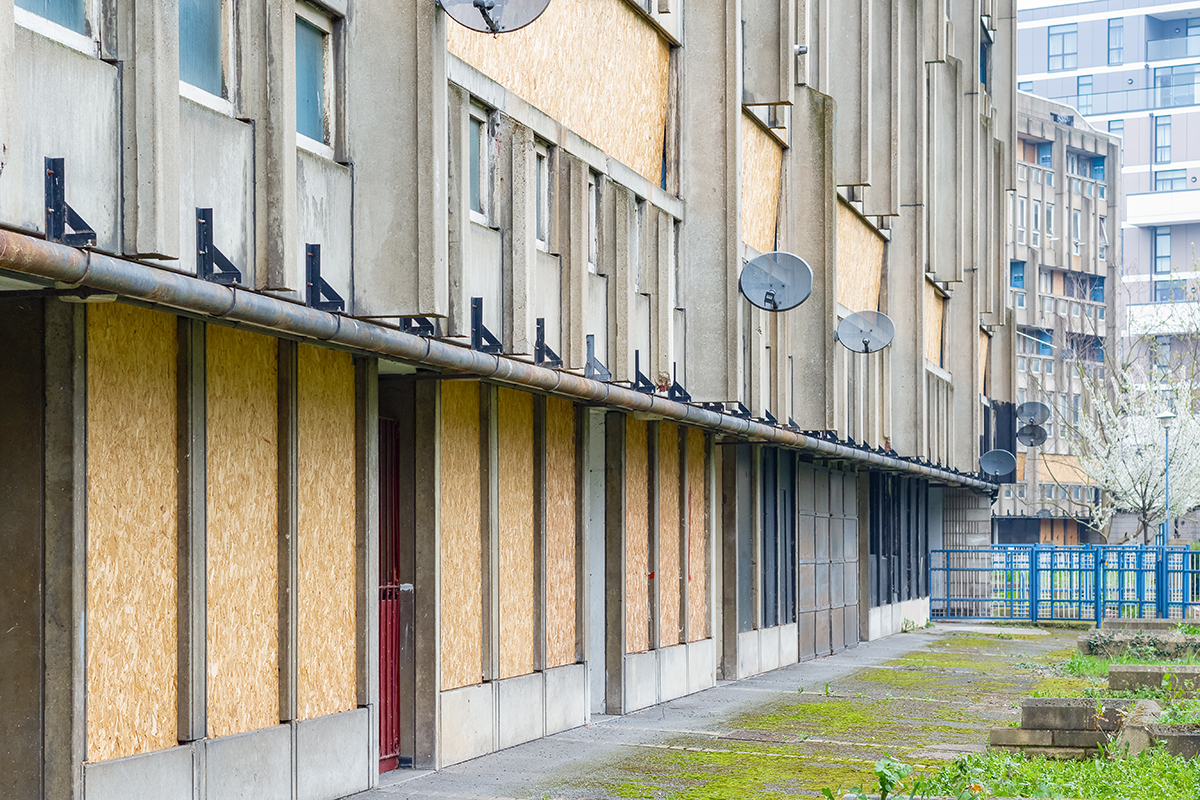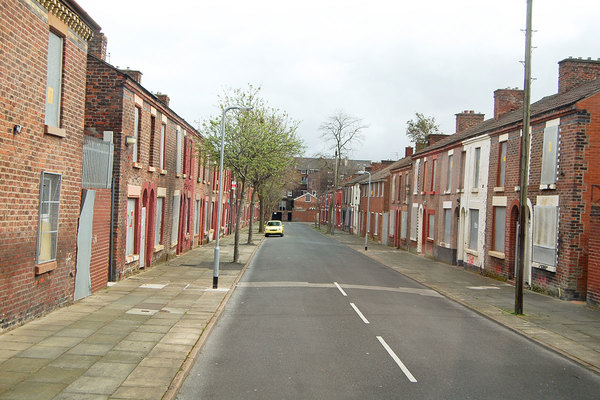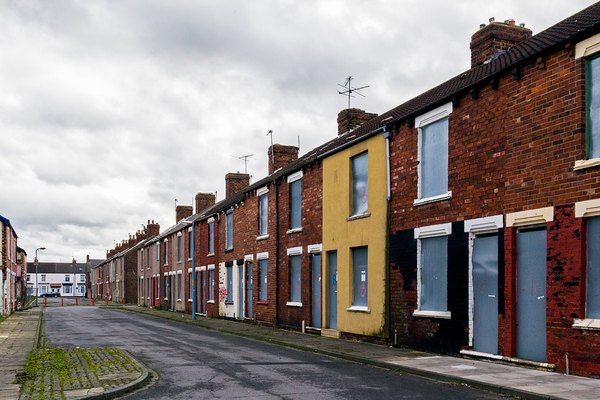Can property guardianship play a role for social landlords?
Property guardians can play a role in securing buildings. What role could they play for social landlords? A survey of the sector finds out what the appetite is
In association with:

Empty offices and retail units, blocks of flats awaiting demolition or in need of costly refurbishment – they all have to be secured. It can be expensive, but the costs of removing squatters, or dealing with the anti-social behaviour that boarded-up buildings attract, can be even higher.
Over the past few years, a relatively new – and cost-neutral – approach to securing empty properties has been making inroads into the social housing sector: using full-time, live-in ‘property guardians’ to keep buildings safe and secure. Companies that offer this service will cover the costs of making empty properties habitable, and generate their income from the below-market rents paid by the guardians themselves.
But how good a fit is this model for the social housing sector? A new Inside Housing survey, carried out in conjunction with Global Guardians, asked whether property guardianship could provide shelter to less vulnerable homeless people, or people who have lost their jobs due to COVID-19 and are looking to reduce the cost of their rent, and 61% of respondents said it was worth exploring.
The survey also sought to find out how social landlords should approach securing empty properties.
We gathered responses from housing associations, ALMOs and local authorities, as well as from the private rented sector. Asked what measures their organisations used to secure empty properties, meanwhile, a majority (54%) said they used security screens. The next most popular option, at 30%, was property guardians – however when asked whether they understood the guardianship option for securing properties, 51% responded with ‘a little’ or ‘not at all’.
“Guardianship came out about 10 years ago, but not many people know about it,” says Stuart Woolgar, chief executive of property guardian company Global Guardians. “It’s still a niche market. A lot of the guardianship sector have their core clients and haven’t expanded their reach.”
The survey suggests a lack of knowledge about the guardianship model within the housing sector. If organisations had not used property guardians before, the survey asked, what was the reason? More than one-third of respondents (34%) said they had not considered it as an option or did not know enough about it. Just over 20% said they were unsure of its effectiveness, while 11% said it was too expensive.
There is no doubt that security can be an expensive business. The survey asked how much, on average, it costs organisations to secure an empty property for a week. There were a wide range of answers: 2% said they pay more than £3,000 a week, although the vast majority (85%) pay £600 or less. The most popular answer, however – given by just over 30% – was zero. Mr Woolgar believes many of those respondents will already be using property guardians.
“Guardianship is cost-neutral,” he points out. “I would imagine it’s a good area to consider for the public sector, like local authorities, especially because saving money is so important right now.”
In fact, when asked to identify the biggest challenges in securing empty properties, 53% said cost was their main bugbear, while 45% said time.
The survey also included a lack of knowledge (15%) and ineffectiveness (18%) as possible options, but more popular than either was the option to specify an alternative. Of those, a couple related to property guardians. “Making and keeping properties compliant for guardians” was the biggest challenge, according to one respondent. Another wrote: “Authorities’ lack of knowledge in regards to security of tenure where guardians are concerned.”
According to Mr Woolgar, issues like these should be becoming less of a challenge. Five years ago, the property guardian sector was one of the groups that worked with the British Security Industry Association to create a set of standards around vacant property protection. Accrediting these standards has been put on hold because of the pandemic, but he adds: “They are there, and we and other companies do adhere to them. And the longer time goes on, the more they will become the accepted standard.”
In numbers
30%
Proportion who used property guardians to secure empty properties
85%
Percentage who pay £600 or less a week to secure a property
53%
Respondents who said cost was their main bugbear when securing empty properties
15%
Proportion who cited lack of knowledge as an issue
Property guardian firms also point to the community benefits of their approach; keeping buildings in use is a better option than boarding them up, which can attract vandalism and illegal occupation. And there is the social benefit. Research by Shelter, published in July, found that an estimated 3% of adult renters in the UK – around 227,000 individuals – fell into arrears during the pandemic, and could be at risk of losing their homes. Could guardianship be a way to accommodate less vulnerable homeless people?
While the survey’s respondents responded positively in the main, not everyone was on board, and those who replied negatively were asked to explain why they felt this would not be a viable approach. “Homeless people should be offered long-term, sustainable options,” said one respondent. “This is generally a short-term option,” wrote another, “and wouldn’t provide the longer-term security required.”
Mr Woolgar, however, says: “It’s definitely a viable option. Guardianship can help tackle this situation; it’s about unlocking suitable properties from housing associations and local authorities in order to do that.
“The next step would be to keep talking to local authorities and housing associations to find out who is interested in using spare accommodation for this,” he adds. “I’d suggest running a pilot scheme initially to see how it might work in practice.”
Might it work? Watch this (empty) space. The guardian lifestyle, like the model itself, is clearly not for everyone – or every type of empty property. But as the survey suggests, most organisations in the sector who have used property guardians have been pleased enough with the results to carry on using them, or to consider doing so again in the future. And as the economic impacts of the COVID-19 pandemic continue to mount, perhaps more people on both sides of the equation – providers and guardians – will begin to consider it as an option.











